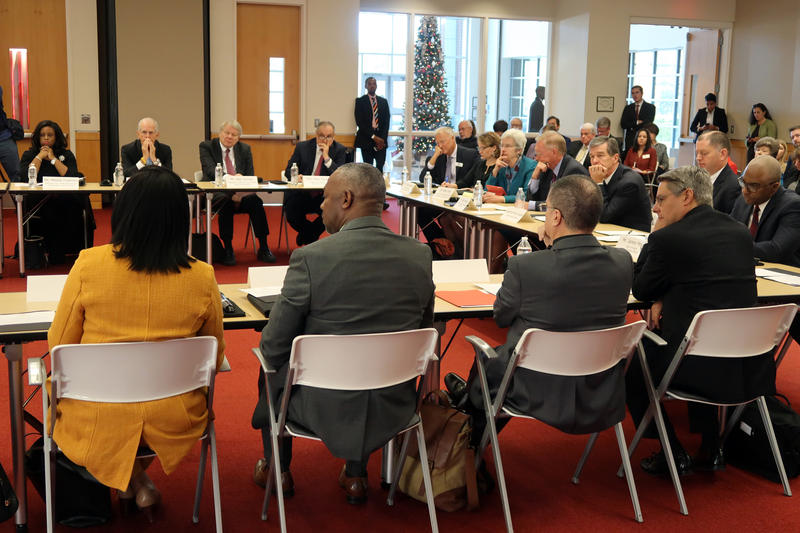CHARLOTTE – The Charlotte-Mecklenburg Branch of the NAACP is encouraged by the most recent action in the long-running Leandro case: the release of the court-ordered report by independent consultant WestEd, “Sound Basic Education for All—An Action Plan for North Carolina.” The Charlotte-Mecklenburg NAACP, along with several individual parents and students in Charlotte-Mecklenburg Schools (CMS), have been part of the Leandro case since 2005, as part of the branch’s commitment to ensure that every student in CMS is provided the opportunity for a sound basic education.
The new comprehensive report affirms what we and other education advocates and parents have been saying for years: that the State has failed to meet its constitutional educational obligations and provide the necessary resources to educate our children–particularly those attending racially segregated and high poverty schools, like far too many of our children in CMS. In 2017-18, 31% of all CMS students attended high poverty schools, but 95-97% of those students were students of color and only 3-5% were white. In the 76 CMS schools where all students qualify for free lunch, nearly 87% of the students are African American or Latino. The WestEd Report’s detailed data and findings show that:
- Students attending “high-poverty” schools in North Carolina are far less likely to receive a sound basic education. These schools are also segregated by race. Across all traditional public schools, enrollment is 52% students of color; in high-poverty schools, enrollment is 77% students of color. In charter schools overall, enrollment is 44% students of color; in high-poverty charter schools, enrollment is 93% students of color.
- Students attending high poverty schools have less access to qualified teachers, qualified principals, sufficient educational resources, and a challenging curriculum, including advanced high school courses and programs for gifted students. These schools also have higher teacher and principal turnover rates.
- High poverty schools lack the necessary financial and other resources to provide needed services or meet the additional challenges faced by students attending these schools.
- There remain significant racial and economic achievement gaps in our educational system. Educational outcomes for African American, Latinx, and Native American students are substantially lower than white and Asian students. Very wide achievement gaps also exist between economically disadvantaged students (EDS) and non-EDS students.
“The Charlotte-Mecklenburg NAACP and I are not surprised by any of the findings in this report. We have been advocating for concrete, tangible educational equity for years; our cries fell on deaf ears. All elected officials including school board and county commissioners have been complicit in the continual harm done to children of color in CMS.” said Min. Corine Mack, the President of the Charlotte-Mecklenburg NAACP. “The glaring educational inequities of CMS must be addressed and I pray the NC Legislators act swiftly! The actions of CMS has done irreparable harm to thousands of Black and Brown children.”
“Twenty-five years after the Supreme Court’s definitive ruling in Leandro, we are hopeful that with this comprehensive report on its failure to provide a sound basic education to all students in North Carolina, the State will at last develop, fund, and implement an effective Leandro remedy,” said Mark Dorosin of the Lawyers’ Committee for Civil Rights Under Law, which represents the NAACP. “And that means prioritizing the needs of students concentrated in racially isolated, high poverty schools, which are endemic in CMS. We look forward to working with all parties in the case moving forward.” Pursuant to earlier orders of the court, the parties are now discussing how to ensure the report’s recommendations are effectively implemented. It is expected that the court will convene s status conference in the case in mid-January.


